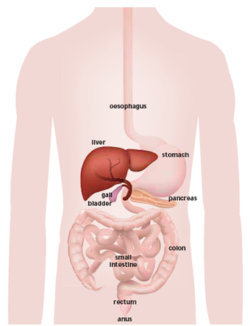
IBD should not be confused with the less serious condition known as IBS. Ulcerative colitis and Crohn's Disease should always be treated by a gastroenterologist.
Inflammatory bowel disease is also referred to as IBD. It is a chronic inflammatory disease of the digestive system. There are two types: Crohn’s disease and ulcerative colitis. Crohn’s disease can affect any part of the digestive tract while ulcerative colitis only affects the colon. About 25% of individuals with IBD are diagnosed during childhood. We don’t precisely understand what causes IBD. As a parent, there is nothing that you could have done to prevent your child from developing IBD.
Symptoms
IBD has a variety of symptoms including abdominal pain, diarrhea, bloody stools, fever, weight loss, and even delayed puberty. There also may be symptoms not related to the digestive tract such as arthritis and rashes.
How is it Diagnosed?
Bloodwork and stool tests are usually the first line of investigation to exclude other digestive disorders such as infections. Upper endoscopy and colonoscopy with biopsies will be needed to establish the diagnosis. Radiographic studies such as x-rays and CT scans are sometimes needed.
How is it Treated?
Medications such as corticosteroids, aminosalicylates, immunosuppressants, antibiotics, and biologic therapies are typically used. Nutritional therapy is another consideration. Rarely, surgery is needed. Your gastroenterologist will tailor therapy to your child. It is our goal at GI Associates to help children with IBD feel well and lead active lives.
References:
Information in this article comes from The Crohn's and Colitis Foundation of America.
